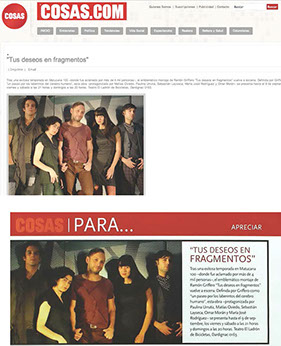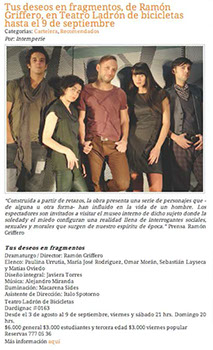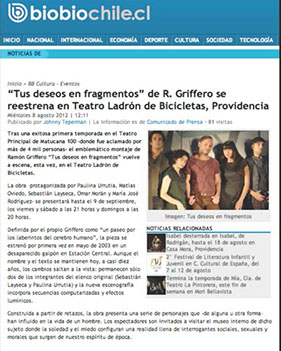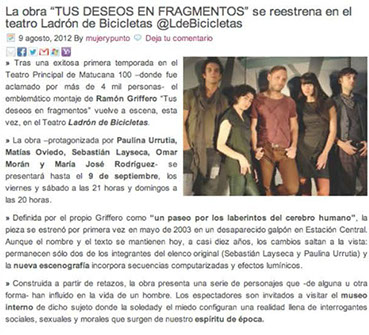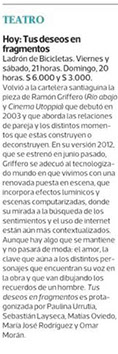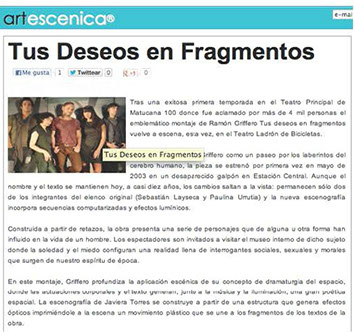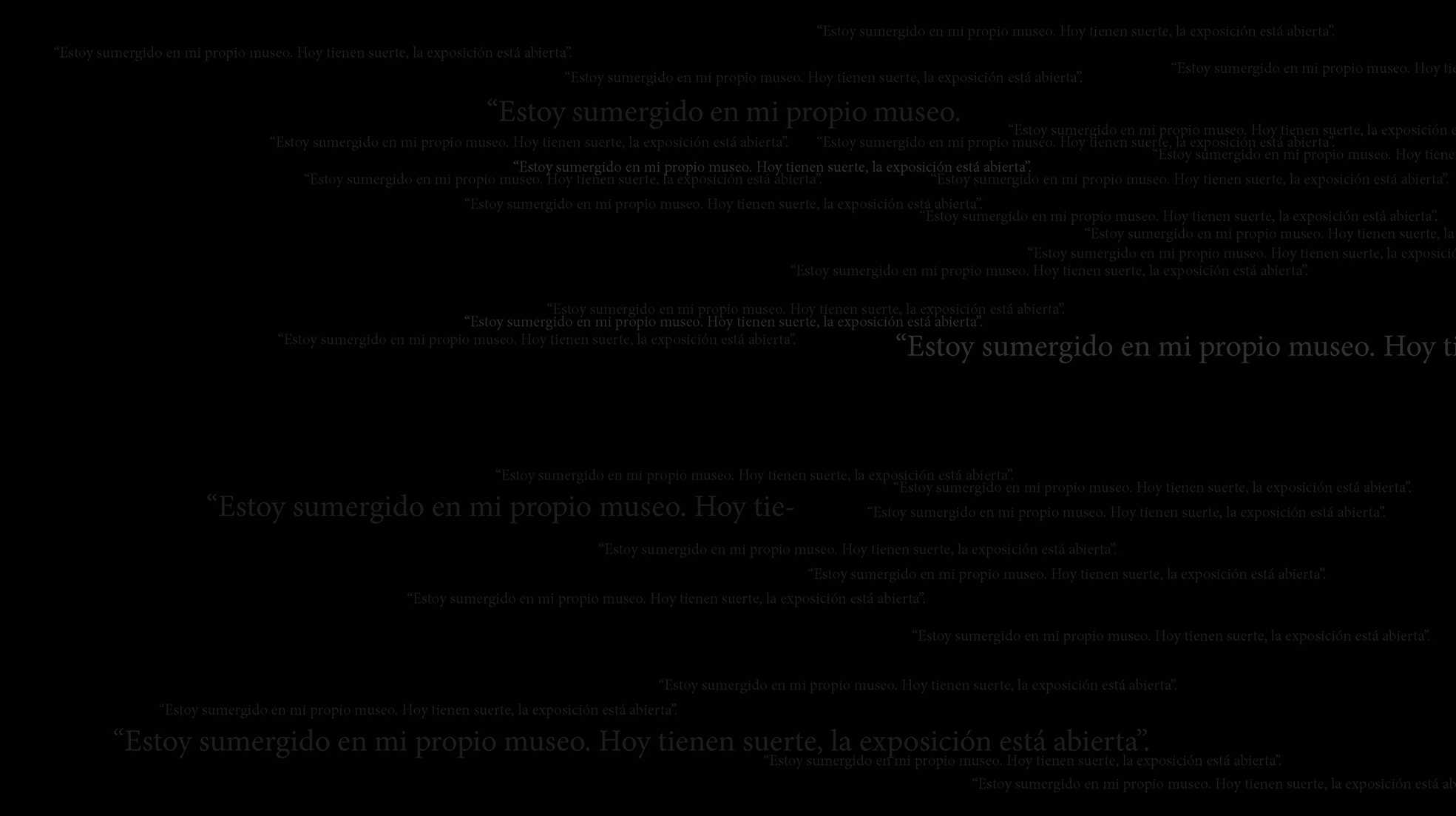
"Estoy sumergido en mi propio museo. Hoy Tienen suerte, la exposición esta abierta."
"Estoy sumergido en mi propio museo. Hoy Tienen suerte, la exposición esta abierta."
"Estoy sumergido en mi propio museo. Hoy Tienen suerte, la exposición esta abierta."
"I am immersed into my own museum. Today you are lucky, the exhibition is open.”

To attend a Ramón Griffero' s play is not to see an ordinary production. In a certain way, it is to go through the milestones of contemporary playwriting, national history, and human archeology. Griffero and his company "Fin de Siglo" have been working since the time of the ‘Trolley’, in the eighties, investigating new proposals and languages in an autonomous theater model, with plays such as "Río abajo", "Éxtasis", "La morgue”, "Cinema utopía", etc. These theatrical milestones may or may not be accessible to the audience, may or may not be successful, but they are always a discovery. Here, the director works with the human mind as a museum of emotions.
The mind as a set of rooms, with exhibition halls, hidden rooms, doors that are difficult to pass through. Based on this assumption, the five actors subtly guide us through this maze to go through each room, staged with a specific installation, which represents a different emotion and sensation: fear, desire, fantasy, phobia, loneliness, neglect. They are not characters but rather speakers who give voice to experiences that were left somewhere in memory, and that are connected only by the linearity of the time in which the play takes place. Despite the abstract aspect of the material, it is possible to identify with the anxiety before a date with an unknown lover, the contradiction of love meetings and disappointments, the fear of love, the need to materialize sexual fantasies.
Griffero's stagings are characterized by a particular spatial poetics that he achieves in collaboration with visual artists who creates an interesting proposal, mixing mobile scenography, multiple installations that assembled and unassembled, producing a sensation of a mental maze where ideas, dreams and desires are captured in images.
"I am immersed into my own museum. You are lucky today; the exhibition is open". This is how this play begins, how the audience starts an erratic and atomized journey through the dark territory of the human psyche. "Tus deseos..." is a conceptual theater looking for translating into words the subconscious, knowing that it is impossible. The play is incomplete despite the texts and the visual narrative. It is a heavy and slow work, where words predominate over dramatic action. Perhaps it needs more theatricality, more performance, but, as always, Griffero surprises and seduces us with this production of the beginning and end of the century.
ATRAS
